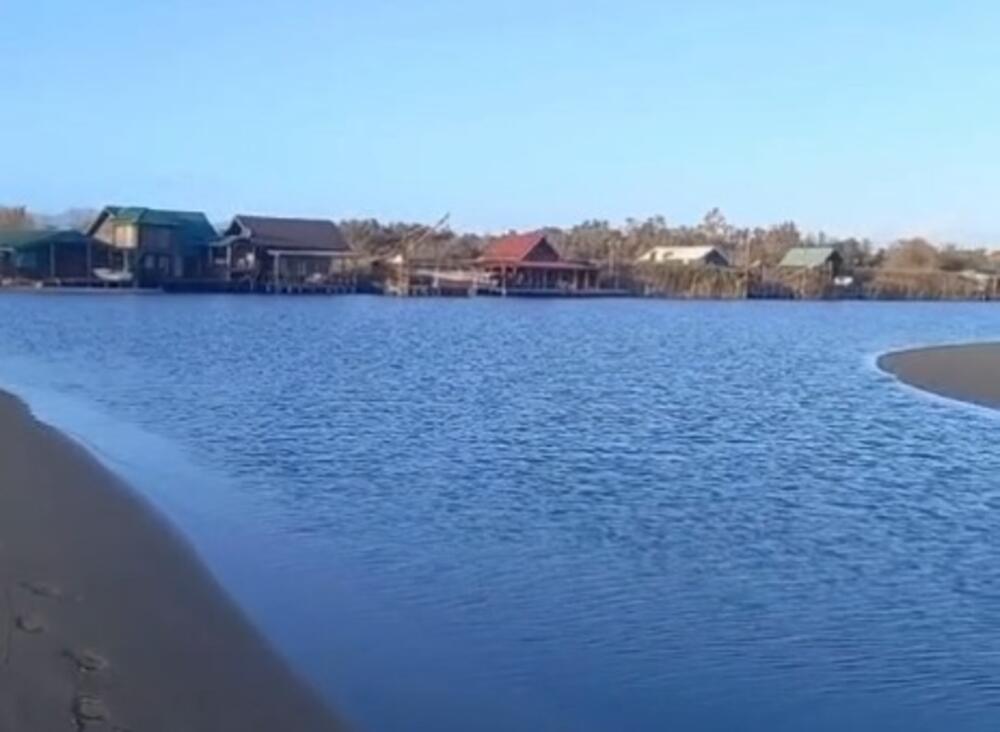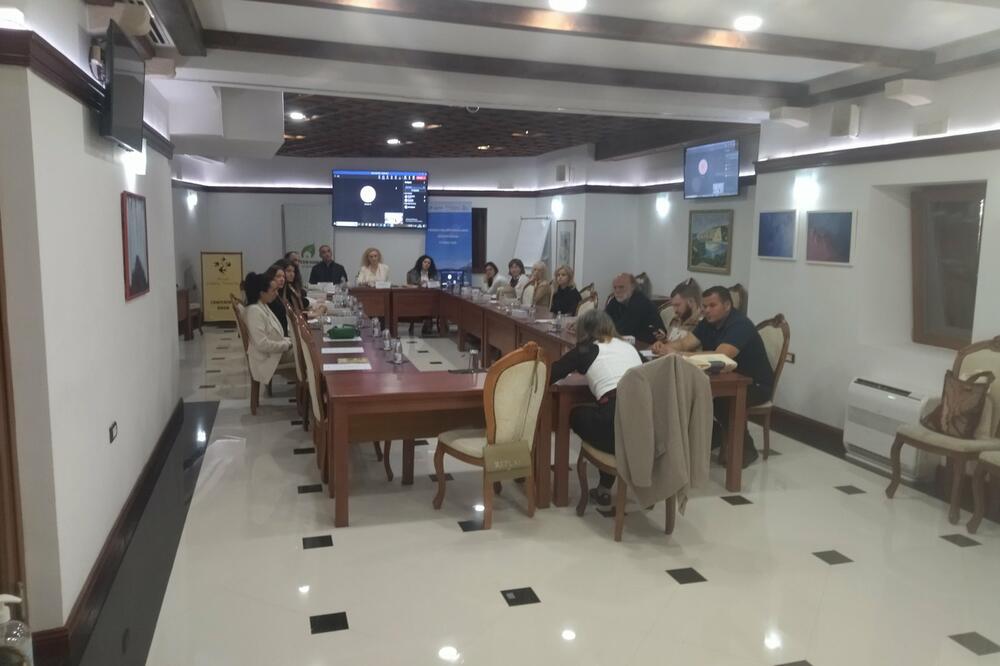Despite the understanding of the need for traffic and economic connection with neighboring Albania, before proceeding to sign the interstate agreement on the basis of which the law was passed, it was necessary to conduct additional research and assess whether the construction of a bridge in this ecologically extremely valuable area, at all possible, is the conclusion from the round table "Bridge on the Bojana River - an ecological challenge", which was organized by the NGO Green Home, held today in the Palata Venezia in the Old Town of Ulcinj.
The NGO also announced that further research is necessary before taking any further steps in relation to this project.
"It is necessary to insist on compliance with all prescribed procedures and international obligations without the possibility of shortening or facilitating the procedures for obtaining permits related to the impact of this project on the environment and the nature of this area; The implementation of this project entails serious environmental risks for the area, which include habitat degradation and fragmentation, conversion of space, felling of trees, urbanization, alteration of hydromorphology, canalization and drainage of water bodies, disturbance of species, photo pollution, chemical pollution, noise pollution, road casualties and numerous others that need to be evaluated and analyzed with extreme care", reads the statement of the NGO submitted to "Vijesti".
The focus of the Round Table was the infrastructure project of building a bridge on the Bojana River, a key biodiversity area of the Bojana Delta.
The executive director of Green Home, Azra Vuković, said in her introductory speech that this NGO understands the need for traffic and economic connectivity between the two countries.
"However, as we have seen many times so far, the idea of realizing the project of building a bridge on the Bojana River did not come from strategic and planning documents, but strategic and planning documents are adapted to project ideas," Vuković said.
She stated that the Government of Montenegro established the proposal of the Law on the confirmation of the agreement between the Government of Montenegro and the Council of Ministers of the Republic of Albania on the construction of an interstate bridge over the Bojana River, which was signed by the previous Government. Recently, she reminded, that Law was adopted by the Parliament of Montenegro.
"The agreement states that the general goal of the project is to improve the connection in the cross-border area between Montenegro and Albania by creating conditions for maximum use of natural and cultural potential, as well as strengthening economic and social development in the region, while ignoring the fact that it is an extremely a valuable natural area, both at the national and international level", said Vuković.
She said that what is particularly worrying about that agreement is the fact that the signatories agreed that the parties undertake to speed up and facilitate the procedures for approving appropriate permits and fulfilling social and environmental obligations.
"Keeping in mind that this is an extremely valuable natural area, I believe that in this process it is necessary to insist on compliance with all procedures related to the provision of permits related to environmental protection and European standards, as well as international obligations related to for this area. In this context, I appreciate that defining the agreement in this way is not the happiest solution," said Vuković.

She stated that for projects that have the potential to damage nature in the area where they are being implemented, care should be taken to ensure that permits related to the impact on the environment are not obtained through facilitating procedures, but to fully implement all procedures that are defined by laws and international obligations.
"As a number of documents related to the implementation of this project are about to be adopted, when developing these documents, one must think about the value of this natural area and the impact of this project on the environment. The situation during the construction of the bridge on the Tara River during the construction of the highway is a serious warning and an indicator of how undeveloped mechanisms for monitoring and monitoring the environmental impact during the construction of such facilities are in Montenegro," concluded Vuković.
She added that the bridge is planned just above the fork of the two branches of the Bojana River, where Ada Bojana is formed, which represents the largest complex of flood alluvial forests on the eastern coast of the Adriatic.
In addition to Vuković, the State Secretary in the Ministry of Spatial Planning, Urbanism and State Property Marina Izgarević Pavićević and the Secretary for Agriculture, Rural Development and Ecology of the Ulcinj Municipality Zećarija Sulejmanović gave the opening speeches.
Expert presentations on planning frameworks and ecological challenges of the construction of the bridge on Bojana were given by Dina Skarep from the team for the development of the environmental SPU for PPCG, the manager of the development of the Ulcinj PUP Ksenija Vukmanović, expert-biologist Bogić Gligorović and Nina Mihailović from the NGO Green Home.
The round table "Bridge on the Bojana River" was realized by Green Home as part of the project "Support for better management of the Bojana delta in Montenegro", which is supported by the Critical Ecosystem Partnership Fund (CEPF).
Bonus video:





